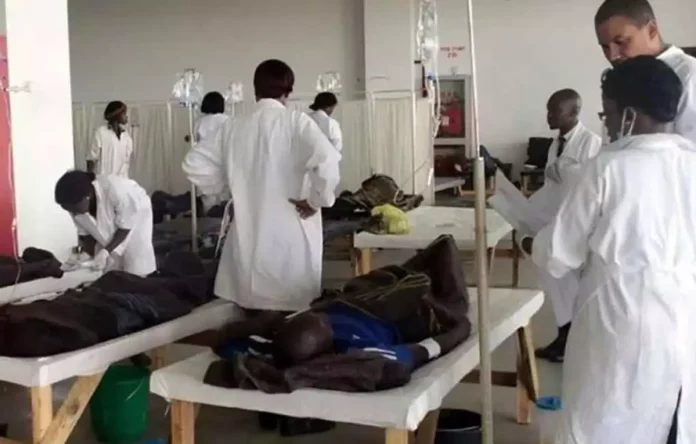According to the Health Ministry’s daily press release, since the outbreak started in early January, Angola has reported 3,402 cholera cases and 114 fatalities. Angola has been reporting over 100 new cases of cholera or Blue death every day since February 1, with a peak of 295 cases on February 8. However, according to the press release on Tuesday, only roughly 20 samples are analyzed daily, meaning that laboratory testing to confirm infections is still limited.
The disease has expanded to several regions since the January 7 outbreak, but it has primarily hit Luanda and the neighboring province of Bengo. The Health Ministry’s epidemiological bulletin on Monday stated that over 925,000 people, or 86% of the target population, had received vaccinations, according to Xinhua news agency.
Cholera or Blue death –
The World Health Organization defines cholera as an acute diarrheal illness brought on by ingesting food or water tainted with the Vibro cholerae bacteria. It is a sign of inequality and a lack of social and economic advancement and poses a threat to public health worldwide. Blue death and other waterborne illnesses can be avoided by having access to clean water, basic sanitation, and good hygiene.
Oral rehydration solution (ORS) can be used to treat the mild to moderate diarrhea that most cholera patients experience. However, in order to save lives, therapy must begin as soon as possible because the condition can advance quickly. Intravenous fluids, ORS, and antibiotics are necessary for patients with severe illness. If left untreated, severe acute watery diarrhea from cholera can be lethal in a matter of hours. Although the majority of Vibro cholerae infections do not cause symptoms, the bacteria can be transferred through feces for one to ten days. Twelve hours to five days after infection, symptoms start to appear.
For ages, people have been aware of Blue death. The 19th century saw the first known pandemic, or worldwide epidemic. Millions of people have died globally as a result of six pandemics since then. In 1961, the current (seventh) pandemic began in South Asia and is still affecting people all over the world.
By – Juhi
ALSO READ – Niger Becomes the First African Country to Eradicate Onchocerciasis




